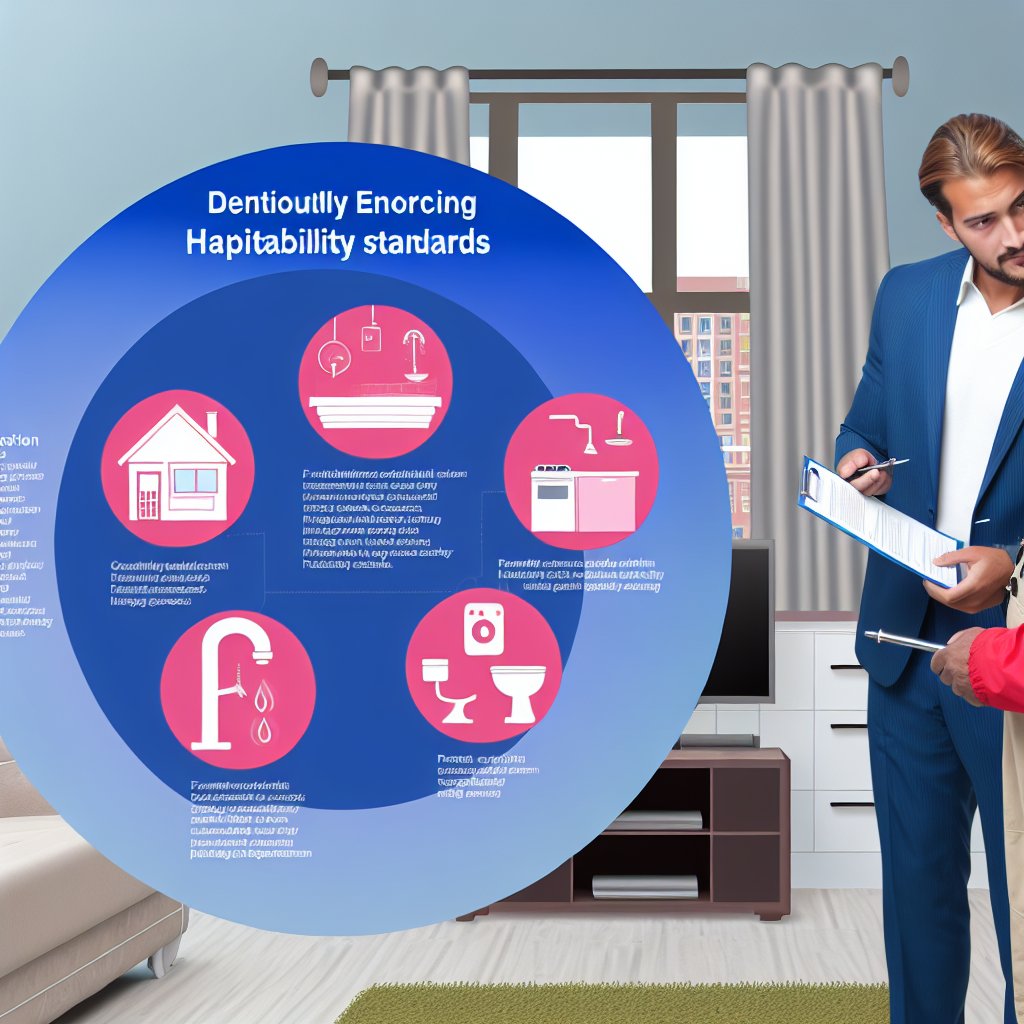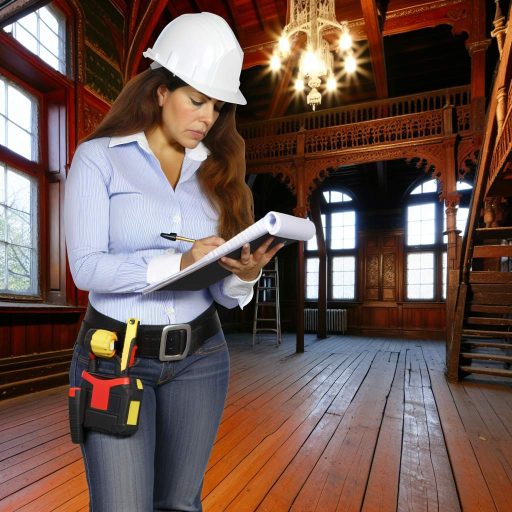Introduction to Habitability Standards in Real Estate
Habitability standards ensure that rental properties are safe and livable.
These standards cover various aspects of residential living, including health and safety.
Landlords must meet specific requirements to maintain these conditions.
Tenant rights enforce the accountability of landlords in this regard.
Understanding these standards protects both renters and property owners.
Definition of Habitability Standards
Habitability standards refer to the minimum requirements for rental properties.
They typically include safe drinking water, adequate heating, and pest control.
Moreover, these standards often evolve to reflect changing health guidelines.
Compliance with these standards is crucial for both landlords and tenants.
Importance of Habitability Standards
These standards protect tenants from unsafe living conditions.
They play a vital role in promoting public health and safety.
Additionally, habitability standards ensure equitable treatment of all tenants.
In fact, well-maintained properties benefit landlords in the long run.
Common Habitability Issues
Several issues frequently arise regarding habitability standards.
- Leaks and plumbing issues can lead to mold and structural damage.
- Heating and cooling systems must function correctly throughout the year.
- Electrical hazards pose significant risks to tenant safety.
- Pest infestations can create unhealthy living environments.
Legal Framework for Habitability Standards
Most states enforce specific habitability laws for rental properties.
These laws vary by location but generally establish similar requirements.
Landlords must often provide written agreements outlining these obligations.
Consequently, tenants should familiarize themselves with local laws.
Tenant Rights Related to Habitability
Tenants have specific rights concerning habitability standards.
They can request repairs for any issue impacting their living conditions.
Additionally, tenants may withhold rent if landlords fail to address these issues.
They also have the right to terminate leases under certain circumstances.
Awareness of these rights empowers tenants to advocate for themselves.
Key Components of Habitability Standards
What are Habitability Standards?
Habitability standards ensure rental properties remain livable and safe for tenants.
They protect tenants’ rights to a home that meets basic health and safety requirements.
Fulfilling these standards maintains the integrity of the housing market.
Essential Components of Habitability
Basic elements of habitability include a functional heating system.
Additionally, all dwelling units must have sufficient hot and cold running water.
Moreover, properties should offer adequate ventilation and natural light.
Each unit must be free from pests and infestations for tenant safety.
Legal Framework Surrounding Habitability
Local and state laws govern habitability standards across jurisdictions.
These laws often define what constitutes an uninhabitable property.
For instance, serious structural issues may violate these standards.
Understanding the legal framework helps tenants assert their rights effectively.
Tenant Rights and Responsibilities
Tenants have the right to report any habitability issues without fear of retaliation.
They can request repairs from landlords in a timely manner.
Landlords are responsible for maintaining properties to meet habitability standards.
Failure to comply may result in legal action from tenants.
Enforcing Habitability Standards
Tenants can file complaints with local housing authorities for enforcement.
Documentation of issues such as photographs or written communications helps support claims.
Additionally, tenants may seek legal representation for significant violations.
Understanding the enforcement process empowers tenants to advocate for their rights.
Understanding Tenant Rights under Habitability Laws
Definition of Habitability
Habitability refers to the condition of rental properties.
A habitable home is safe, sanitary, and fit for living.
Landlords must provide basic services and amenities.
This includes heat, water, and electricity in working order.
Key Components of Habitability Standards
Habitability laws vary by state but share common elements.
Landlords are responsible for maintaining livable conditions.
- Working plumbing and electrical systems are essential.
- Heating facilities must be operational during cold months.
- Structural issues, like leaks or pest infestations, must be addressed.
Understanding Tenant Rights
Tenants have specific rights under habitability laws.
They can request repairs and seek enforcement if neglected.
Additionally, tenants can withhold rent under certain conditions.
They may also break leases if the property is uninhabitable.
Enforcement of Tenant Rights
Enforcement begins with communication between tenants and landlords.
Documenting issues is crucial for effective resolution.
Tenants can utilize local housing authorities for assistance.
If necessary, legal action can provide further support.
Resources for Tenants
Several organizations offer support to tenants.
- Legal aid clinics help tenants understand their rights.
- Tenant unions advocate for better living conditions.
- Online resources provide forums for sharing experiences.
Gain More Insights: How to Leverage Local SEO for Marketing Rental Properties Successfully
The Role of Landlords in Maintaining Habitability
Understanding Habitability Requirements
Landlords have a legal obligation to maintain rental properties in a habitable condition.
They must meet health and safety standards as defined by local laws.
Furthermore, habitability includes providing essential services such as water and heating.
Landlords must regularly inspect their properties to ensure compliance.
Responsibilities for Repairs and Maintenance
Timely repairs are a crucial aspect of landlord responsibilities.
When tenants report problems, landlords must respond promptly.
Common issues that require attention include plumbing leaks and electrical hazards.
In addition, landlords must ensure that common areas are safe and well-maintained.
Penalties for Failing to Maintain Habitability
Failure to meet habitability standards can lead to serious consequences for landlords.
Tenants may have the right to withhold rent until repairs are made.
Moreover, landlords could face legal action and fines for non-compliance.
Ultimately, maintaining habitability protects both tenants and landlords.
Communication and Documentation
Effective communication between landlords and tenants is vital.
Landlords should document all maintenance requests and responses.
Written records can be crucial in resolving disputes.
Additionally, clear communication builds trust and fosters a positive rental experience.
See Related Content: Property Inspections for Real Estate Appraisals
Legal Framework for Enforcing Tenant Rights
Overview of Tenant Rights
Tenant rights are fundamental in housing law.
They provide protections to individuals renting properties.
These rights vary by jurisdiction but generally include safe living conditions.
Furthermore, tenants have the right to privacy and due process.
Understanding these rights is crucial for all renters.
Key Legislation Impacting Tenant Rights
Multiple federal and state laws govern tenant rights.
The Fair Housing Act is a vital piece of legislation.
It prohibits discrimination based on race, religion, or gender.
Additionally, local laws often provide further protections.
For instance, some states have specific codes for habitability standards.
Enforcement Mechanisms
Enforcement of tenant rights can occur through various channels.
Tenants can file complaints with local housing authorities.
Another option is pursuing legal action in civil court.
Many jurisdictions also offer tenant mediation services.
These services help resolve disputes without rampant conflict.
Documentation for Tenant Rights Violations
Proper documentation is crucial for enforcing tenant rights.
Tenants should keep records of communications with landlords.
This includes emails, texts, and written notices.
Furthermore, photographs of any unsafe conditions are essential.
Documenting dates and times of incidents is also helpful.
Resources for Tenants
Multiple resources exist to help tenants understand their rights.
Local legal aid organizations can provide guidance.
Additionally, government websites often offer valuable information.
Furthermore, tenant unions can advocate for renters’ rights.
These organizations empower tenants to voice concerns collectively.
See Related Content: Lease Agreements for Student Housing Rentals

Common Habitability Issues and Their Solutions
Mold and Mildew
Mold and mildew can pose serious health risks to tenants.
Inspect your home regularly for signs of mold growth.
Focus on damp areas such as bathrooms and kitchens.
If you find mold, clean it immediately with appropriate solutions.
Ensure proper ventilation to prevent future mold issues.
Landlords must address mold problems quickly to avoid legal issues.
Heating and Cooling Failures
Heating and cooling systems must function effectively.
Regular maintenance can prevent most heating failures.
In winter, ensure your heating system is operational before the cold hits.
In summer, check air conditioning units for functionality.
Landlords are responsible for providing adequate heating and cooling.
Report any failures to your landlord urgently.
Plumbing Problems
Leaky faucets and toilets can waste water and increase bills.
Immediately report any plumbing issues to your landlord.
Address clogged drains quickly to avoid further damage.
Landlords must repair plumbing issues to maintain habitability standards.
Infestations
Insect and rodent infestations create unsanitary living conditions.
Contact your landlord right away if you notice pests.
Perform routine checks to catch infestations early.
Landlords must take action to eliminate infestations promptly.
Electrical Hazards
Electrical issues can pose serious safety risks.
Look for flickering lights or frequently blown fuses.
Report electrical problems to your landlord without delay.
Landlords have a duty to ensure electrical systems are safe.
Unsafe Structural Conditions
Structural issues such as cracks and leaks can compromise safety.
Check ceilings, walls, and floors for signs of damage.
Report any concerns regarding structural integrity immediately.
Landlords must maintain the property’s overall safety and stability.
See Related Content: Property Inspections for Fixer-Upper Properties
Case Studies: Successful Tenant Rights Enforcement
Introduction to Tenant Rights Enforcement
Enforcing tenant rights promotes fair housing and safety standards.
Successful case studies can highlight effective strategies for tenants.
New York City: Rachael’s Story
Rachael faced severe mold issues in her apartment.
After months of complaints, she decided to take legal action.
She gathered evidence, documenting the mold’s effects on her health.
Rachael connected with a local tenants’ rights organization for support.
The organization helped her file a lawsuit against her landlord.
Eventually, the landlord was ordered to make necessary repairs.
This case inspired other tenants to assert their rights.
Los Angeles: Community Action Group
A community action group in Los Angeles organized tenant workshops.
These workshops educated tenants on their rights and legal processes.
They emphasized the importance of collective action against landlords.
This group also provided legal assistance to struggling tenants.
As a result, several tenants successfully challenged eviction notices.
Furthermore, landlords improved their communication regarding lease agreements.
Chicago: The Case of Cold Apartments
During a harsh winter, many tenants faced heating issues.
Concerned about their safety, they formed a tenants’ union.
They collected data on heating outages and shared their experiences.
After filing complaints, they received media attention.
City officials responded by launching an investigation into heating standards.
This led to a citywide inspection and enforcement of heating regulations.
Consequently, this case highlighted the power of organized advocacy.
Seattle: Legal Aid and Mobile App
In Seattle, a legal aid program launched a mobile app for tenants.
This app helps tenants report housing violations effortlessly.
With a user-friendly interface, tenants could document issues quickly.
The app also provided information on tenants’ rights and resources.
This innovation led to increased reporting of violations across the city.
Consequently, more landlords faced accountability for their actions.
Empowering Tenants through Advocacy
These case studies show that tenant rights enforcement is possible.
With appropriate resources and community support, tenants can succeed.
Furthermore, these stories can inspire others to take action.
Advocacy groups play a vital role in these success stories.
Persistent efforts can lead to positive results for tenants.
Resources for Tenants Seeking to Enforce Their Rights
Understanding Tenant Rights
Tenants have specific rights that protect them from unfair treatment.
These rights include safe living conditions and privacy.
Additionally, tenants deserve the right to timely repairs.
Knowing these rights is the first step in enforcement.
Local Tenant Advocacy Groups
Many cities have organizations dedicated to tenant advocacy.
For example, the Tenant Resource Center in Chicago offers support.
They provide information on tenant rights and legal assistance.
Additionally, they organize community workshops on housing rights.
Joining a local group can strengthen your knowledge and voice.
Legal Aid Services
Legal aid services offer free or low-cost legal representation.
Organizations such as the Legal Aid Society help tenants navigate disputes.
These services can assist with eviction proceedings and lease disputes.
Furthermore, legal aid can provide valuable resources online.
Documentation and Evidence Collection
Gathering evidence is crucial in enforcing tenant rights.
Start by documenting any issues in your rental unit.
Take photographs of problems like mold, leaks, or pest infestations.
Additionally, maintain a record of communication with your landlord.
Filing Complaints
When necessary, tenants can file complaints with local housing authorities.
This process differs by location, so check your local regulations.
Provide copies of your documentation along with your complaint.
Effective complaints prompt investigations into landlords’ practices.
Understanding Legal Processes
Enforcing tenant rights may involve understanding legal processes.
Filing a formal complaint or lawsuit may be required.
Consider consulting with legal professionals for guidance.
Many legal advisors offer free consultations for tenants.
Resources for Further Education
Educating yourself is essential to empower your rights as a tenant.
Numerous websites offer free resources and guides.
For instance, the National Low Income Housing Coalition provides valuable information.
Additionally, community colleges often host workshops on tenant rights.




